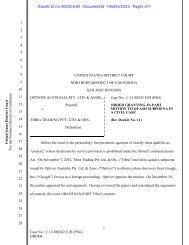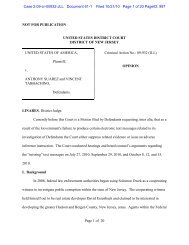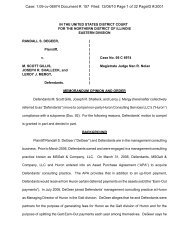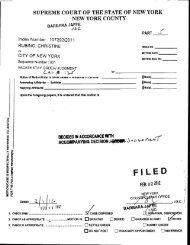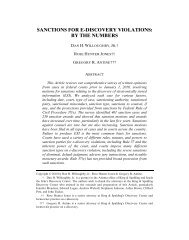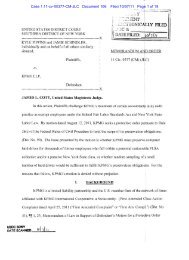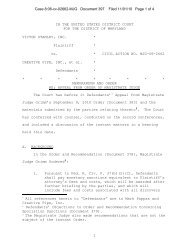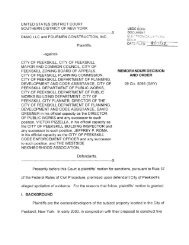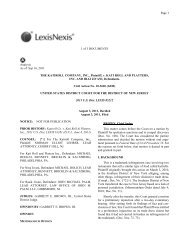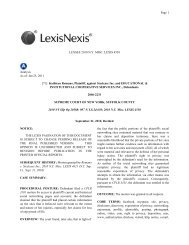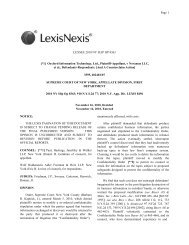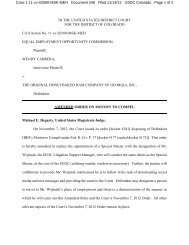Rimkus Consulting Group Inc. v. Cammarata - Ballard Spahr LLP
Rimkus Consulting Group Inc. v. Cammarata - Ballard Spahr LLP
Rimkus Consulting Group Inc. v. Cammarata - Ballard Spahr LLP
You also want an ePaper? Increase the reach of your titles
YUMPU automatically turns print PDFs into web optimized ePapers that Google loves.
Case 4:07-cv-00405 Document 450 Filed in TXSD on 02/19/10 Page 101 of 139<br />
As discussed below, the Louisiana court entered a valid and final judgment under<br />
Texas law on <strong>Rimkus</strong>’s reconventional demand for misappropriation of trade secrets, breach<br />
of fiduciary duty, and disparagement, satisfying the Louisiana elements for preclusion. See<br />
Smith v. State, 04-1317, p. 22 (La. 3/11/05); 899 So. 2d 516, 529–30. However, whether<br />
analyzed under issue or claim preclusion, the defendants’ spoliation of evidence warrants<br />
applying the Louisiana statutory exception to res judicata. The defendants’ spoliation<br />
prevented <strong>Rimkus</strong> from litigating its misappropriation and related claims in Louisiana. The<br />
spoliation justifies granting <strong>Rimkus</strong> relief from preclusion under the statute.<br />
C. Issue Preclusion<br />
The defendants alternatively argue issue preclusion. Each of the allegedly precluded<br />
issues is analyzed below.<br />
1. Noncompetition and Nonsolicitation Covenants<br />
On January 4, 2008, the Louisiana state appellate court ruled that the noncompetition<br />
clause in Bell’s Stock Purchase Agreement was invalid and unenforceable because it was<br />
contrary to Louisiana law and public policy. (Docket Entry No. 309, Ex. N). On March 17,<br />
2008, the Louisiana state trial court ruled that the nonsolicitation of employees clause in the<br />
defendants’ employment agreements was unenforceable. (Id., Ex. Q). The defendants argue<br />
that issue preclusion bars relitigation of <strong>Rimkus</strong>’s claims for breach of these covenants.<br />
<strong>Rimkus</strong> responds that “[t]his court is obligated to apply Texas law to the enforcement of the<br />
non-solicitation of employees provision . . . which is not the same issue that the Louisiana<br />
court had to decide in ruling on the enforceability of the provision in the Louisiana action.”<br />
101



